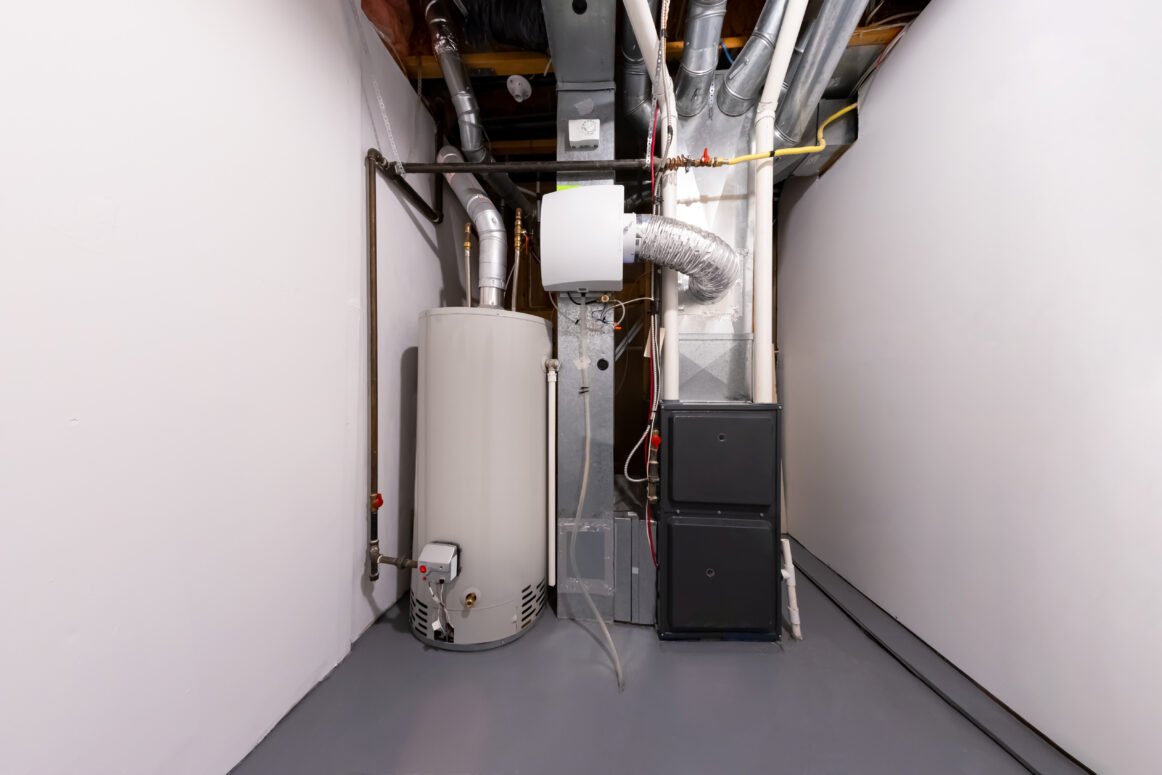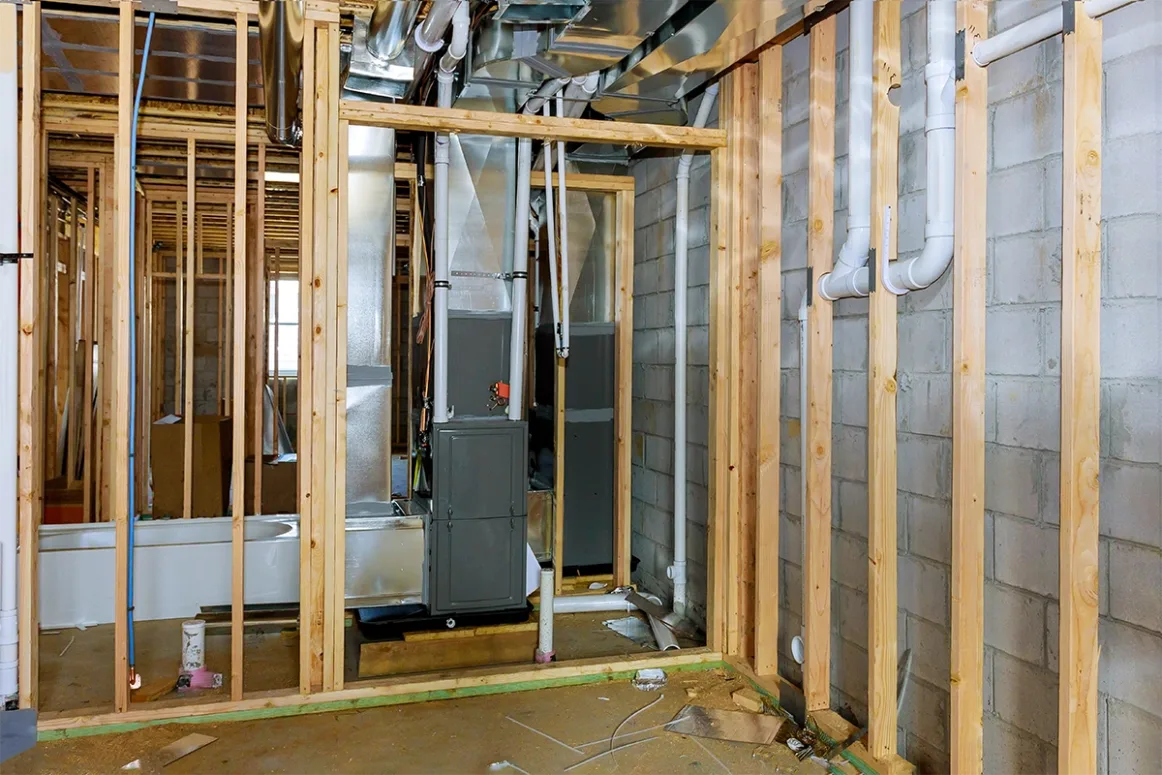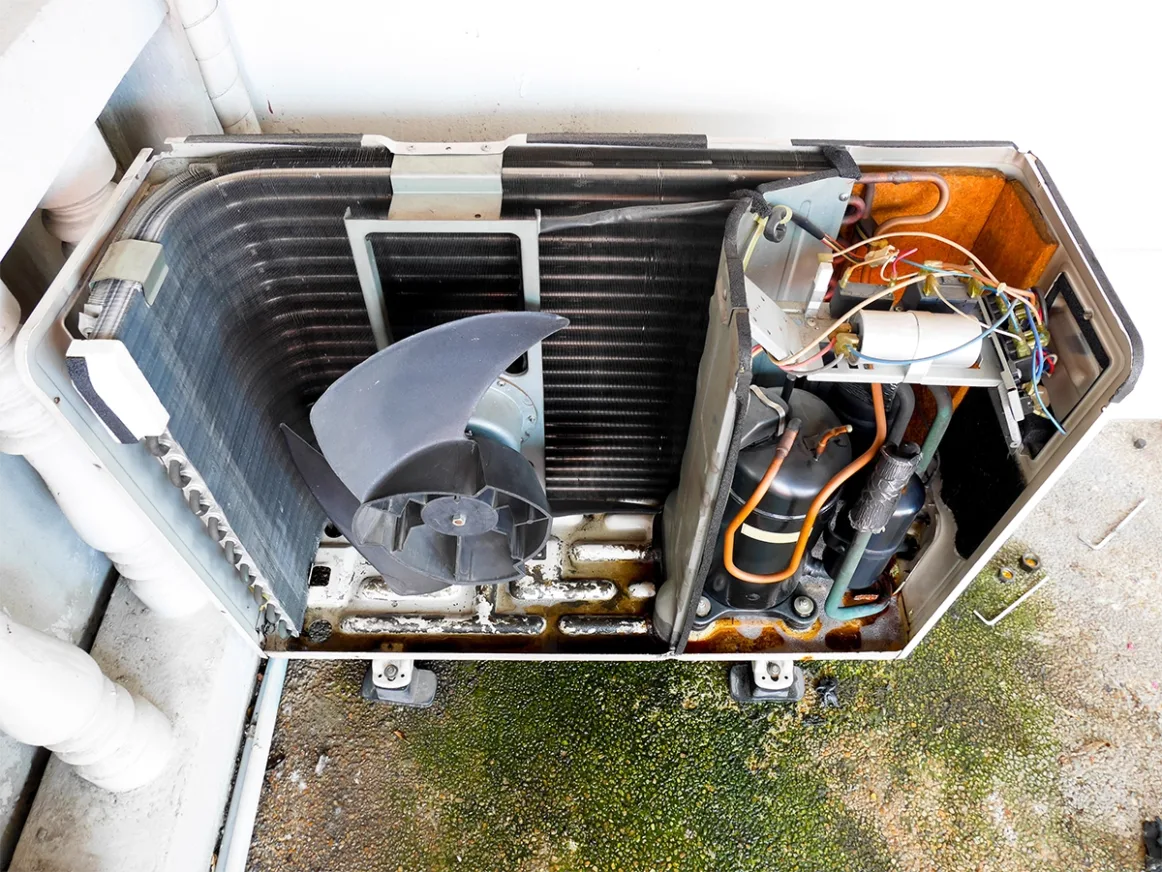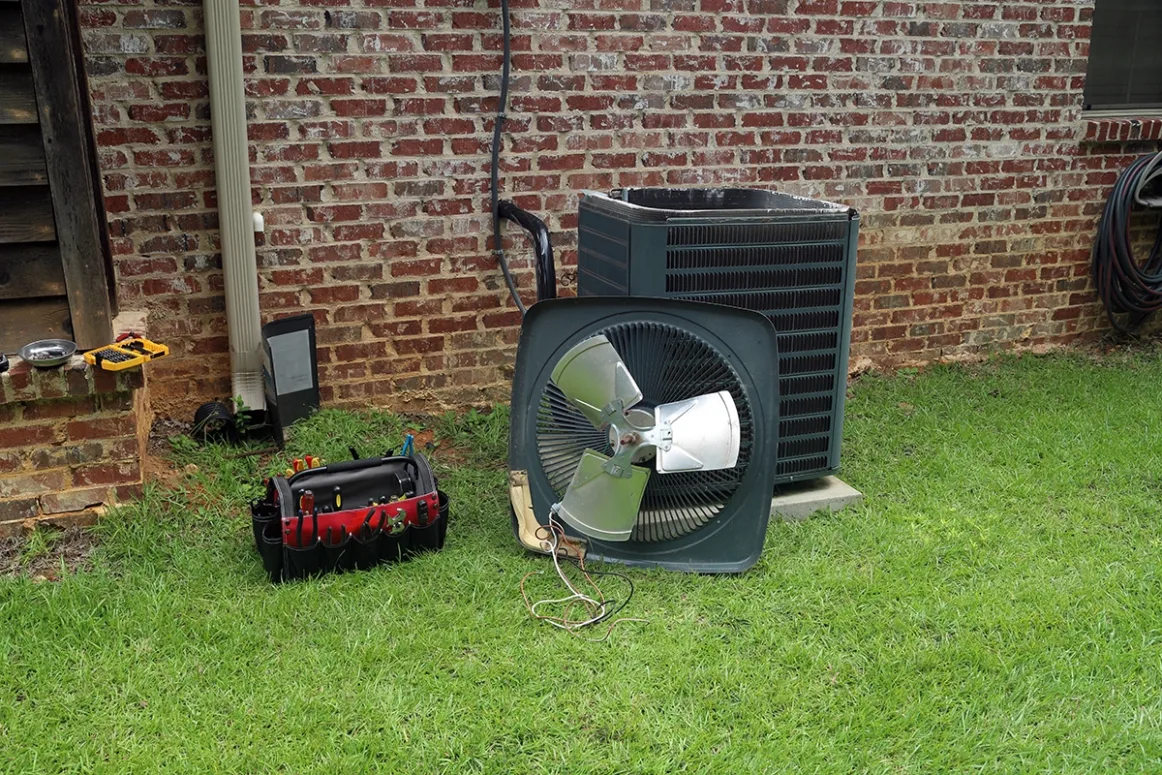
How Long Does a Furnace Last? Lifespan Explained
A furnace is one of the most important systems in your home—keeping you warm, safe, and comfortable when temperatures drop. But if you’ve lived in your home for several years or purchased an older property, you might be wondering: how long does a furnace last? Understanding the lifespan of your heating system can help you plan for maintenance, budgeting, and eventual replacement before your unit gives out in the middle of winter.
Several factors determine how long your furnace will run efficiently—from its type and installation quality to how well it’s maintained. In regions like Canton and surrounding areas, where winters can get chilly, knowing what to expect from your heating system ensures comfort and peace of mind when you need it most. For homeowners exploring maintenance or replacement options, it’s a good idea to learn more about professional heating services that can extend your furnace’s performance and reliability.
In this guide, you’ll learn:
- The average lifespan of a furnace
- Key factors that affect how long a furnace lasts
- How to recognize when replacement may be needed
- Tips for getting the most years out of your system
- How modern furnaces compare to older models in durability and efficiency
Why Understanding Furnace Lifespan Matters

Your furnace represents one of the most significant investments in your home’s comfort and energy efficiency. Knowing its expected lifespan helps you prepare financially and avoid unexpected breakdowns when you need heat the most. It also allows you to plan for upgrades that can improve performance and lower costs over time.
Here’s why furnace lifespan awareness is so valuable:
- Prevents Unexpected Failures: Understanding how long your system typically lasts helps you replace it before it fails during peak winter use.
- Improves Energy Efficiency: Older systems become less efficient over time, driving up utility bills. Timely upgrades can restore performance and reduce waste.
- Enhances Comfort: A well-maintained furnace provides consistent heating without temperature fluctuations or cold spots.
- Saves on Repairs: Knowing when to invest in a new system instead of patching an old one prevents you from spending more on frequent, costly fixes.
- Increases Home Value: Modern, energy-efficient heating systems add appeal to your home and can be a selling point if you plan to move.
How Long Does a Furnace Last? Key Factors Explained
Most furnaces last between 15 and 20 years, though some can run longer with proper maintenance. However, several factors can influence that number—some within your control, and some not. Understanding these can help you take proactive steps to maximize your furnace’s life and efficiency.
Furnace Type and Quality
The type of furnace you have plays a major role in its longevity. Gas furnaces are the most common in Georgia, and they typically last 15–20 years. Electric furnaces, while less common, can run up to 25 years due to their simpler mechanics and lack of combustion components.
High-quality furnaces built by reputable manufacturers usually last longer and experience fewer problems over time. If you’ve invested in a system from a reliable brand and ensured professional installation, you’re already ahead in extending its lifespan.
Maintenance Habits
Regular maintenance is the single most important factor in prolonging your furnace’s lifespan. Dust, debris, and clogged filters can force the system to work harder, leading to early wear and tear.
Annual maintenance should include:
- Cleaning and replacing air filters
- Inspecting and tightening electrical connections
- Checking the heat exchanger and burners
- Lubricating moving parts
- Testing airflow and carbon monoxide levels
Skipping these steps can shorten your furnace’s life by several years. A well-maintained unit, on the other hand, can last well beyond the average expectancy.
Installation Quality
Even the best furnace won’t perform well if it’s improperly installed. Incorrect sizing, poor duct design, or improper venting can cause inefficiencies and unnecessary stress on the system. Always work with licensed HVAC professionals who understand load calculations and follow manufacturer guidelines.
A poorly installed furnace might cycle on and off too frequently, overheat, or fail to distribute heat evenly—issues that reduce its lifespan and efficiency. For a complete understanding of what the proper installation process involves and how it guarantees your system’s longevity and performance, consult our comprehensive resource on furnace installation and what every homeowner needs to know.
Usage Frequency
The more you use your furnace, the faster its components wear out. In Canton and surrounding areas, furnaces run more frequently during the cooler months, but moderate use paired with proper maintenance generally doesn’t lead to excessive wear. If you constantly adjust the thermostat or run your system at extreme settings, however, it can age faster.
Environmental Conditions
Your home’s environment and location play a subtle but important role in your furnace’s health. Dusty homes, poor insulation, or damp basements can all stress your system. Keep your indoor environment clean and ensure your home is properly sealed to reduce strain on your furnace.
4 Signs Your Furnace May Be Nearing the End of Its Lifespan

Even with a proper maintenance routine, every furnace eventually reaches the end of its useful life. Knowing the warning signs of an aging system helps you plan for replacement before it fails unexpectedly.
1. Rising Energy Bills
If you’ve noticed a steady increase in your heating costs without a corresponding rise in usage, your furnace may be losing efficiency. Components naturally wear down over time, forcing your system to use more energy to produce the same amount of heat.
What to do: Compare your current bills to those from past winters. If they’ve climbed noticeably, it may be time for a professional inspection or a new, high-efficiency furnace.
2. Frequent Repairs
Are you calling for service more than once or twice a year? As furnaces age, internal components like blower motors, ignitors, and heat exchangers begin to fail. If repair costs start to approach half the price of a new system, replacement is the wiser investment.
Tip: Keep track of repair receipts. A pattern of increasing frequency and cost often signals your furnace is nearing the end.
3. Uneven Heating or Cold Spots
If some rooms in your home stay warm while others remain cold, your furnace may not be distributing air evenly. This could be due to duct issues or the unit’s inability to maintain sufficient output.
Possible causes include:
- Weak blower motor
- Duct leaks or blockages
- Old or failing heat exchanger
When uneven heating persists after maintenance, replacement might be the most cost-effective fix.
4. Strange Noises
Older furnaces often develop new sounds—rattling, banging, popping, or humming. These can indicate loose components, worn bearings, or air leaks. While some noises are harmless, recurring sounds may signal serious issues like a cracked heat exchanger or failing motor. On a related note, if you are also interested in reducing sound from another major appliance on your property, we have tips for how to lower air conditioner noise and keep your entire home environment quiet.
How to Extend the Life of Your Furnace
While no furnace lasts forever, consistent care can easily add several years to its lifespan. Here’s how to keep your system running at peak performance for as long as possible.
Schedule Annual Professional Maintenance
Having a professional HVAC technician inspect and service your furnace every year ensures small issues are addressed before they become costly problems. During a tune-up, technicians clean components, test airflow, and verify safety controls—all of which improve efficiency and extend system life.
Change Your Filters Regularly
Clogged filters are one of the top causes of system strain. Depending on your filter type, they should be replaced every 1–3 months. A clean filter allows for proper airflow, reduces energy use, and prevents overheating.
Keep Air Vents Clear
Blocked vents force your furnace to work harder, creating unnecessary stress on the blower motor. Regularly check your home’s vents and ensure furniture, rugs, or curtains aren’t obstructing them.
Maintain a Clean Home Environment
Dust and debris circulate easily through HVAC systems. Regular vacuuming, especially near air returns, minimizes buildup inside your furnace and ducts. Consider professional duct cleaning every few years for optimal performance.
Use a Programmable Thermostat
Smart thermostats help manage furnace use efficiently by adjusting temperatures automatically when you’re asleep or away. Reducing unnecessary run times minimizes wear and tear.
Comparing Older and Modern Furnaces

If your current furnace is nearing retirement, you’ll be happy to know today’s models are significantly more advanced. Below is a quick comparison to highlight the differences:
- Average Lifespan: Older furnaces typically last 12–18 years, while modern units can operate 18–25 years with proper maintenance.
- Energy Efficiency (AFUE): Traditional furnaces run at about 70–80% efficiency, whereas newer models reach 90–98% AFUE, significantly reducing energy waste and monthly bills.
- Noise Level: Older systems often have louder operation, but modern furnaces feature variable-speed motors that keep noise to a minimum.
- Technology: Yesterday’s models relied on single-stage heating, but today’s systems use variable-speed and modulating options to deliver precise, consistent comfort.
- Maintenance Needs: Older furnaces require more frequent service, while modern units need less upkeep when properly cared for.
Keep Your Furnace Running Strong for Years to Come
Your furnace is a long-term investment that deserves care and attention. By understanding how long a furnace lasts and what factors affect its lifespan, you can take steps to protect your system and avoid unexpected breakdowns. Whether it’s time for seasonal maintenance, a diagnostic check, or a new installation, you don’t have to make the decision alone. Our licensed HVAC experts can inspect your system, provide honest recommendations, and help you plan the best path forward.
If you’re noticing signs of aging or just want peace of mind before the next cold season, contact us today to schedule your service. Our team proudly serves Canton and surrounding areas, ensuring every homeowner stays comfortable with a reliable, efficient heating system.





